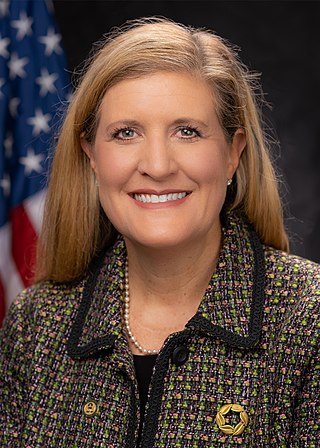The Yale Law Journal (YLJ), known also as the Yale Law Review, is a student-run law review affiliated with the Yale Law School. Published continuously since 1891, it is the most widely known of the eight law reviews published by students at Yale Law School. The journal is one of the most cited legal publications in the United States and usually generates the highest number of citations per published article.
In the United States, a citizen suit is a lawsuit by a private citizen to enforce a statute. Citizen suits are particularly common in the field of environmental law.
Robert David Sack is a senior United States circuit judge of the United States Court of Appeals for the Second Circuit.

Lance Liebman is an American law professor. He is the former Dean of Columbia Law School, and served as the Director of the American Law Institute from May 1999 to May 2014.

United States v. Weitzenhoff, 35 F.3d 1275 is a legal opinion from the Ninth Circuit Court of Appeals that addresses the confusing mens rea requirement of a federal environmental law that imposed criminal sanctions on certain polluters. The main significance of the court's opinion was that it interpreted the word "knowingly" in the statute to mean a general awareness of the wrongfulness of one's actions or the likelihood of illegality, rather than an actual knowledge of the statute being violated. Circuit Court Judge Betty Binns Fletcher authored the majority's legal opinion in this case.
Environmental Law is a law review focused on environmental and natural resources law published by students at the Lewis & Clark Law School. Founded in 1969, it is the oldest law review covering natural resources and environmental law in the United States. The journal is recognized as a national leader in its field and has featured articles by practitioners, academics, legislators, and justices of the United States Supreme Court.

John C. Dernbach is a nationally and internationally recognized authority on sustainable development, climate change, and environmental law. He is Commonwealth Professor of Environmental Law and Sustainability at Widener University Commonwealth Law School and Director of its Environmental Law and Sustainability Center.
Kyle D. Logue is an American law professor and the Douglas A. Kahn Collegiate Professor of Law at the University of Michigan Law School. From 2006-2016 he was the Wade H. and Dores M. McCree Collegiate Professor of Law. Logue is a leading scholar and teacher in the fields of insurance law, tax law, and torts. Logue uses insights from economics, psychology, and other disciplines to shed light on issues relating to the allocation, regulation, and fair distribution of risk in society. His recent research includes work on how private insurance contracts regulate individual and commercial behavior and on how public law regulates the behavior of insurance companies.
Ecology Law Quarterly is an environmental law review published quarterly by students at the UC Berkeley School of Law. The journal also produces Ecology Law Currents, an "online companion journal designed to publish pieces on a more frequent basis than the print journal."
The Harvard Environmental Law Review is a student-run law review published at Harvard Law School. The journal publishes articles, notes, and comments on subjects relating to environmental law, land-use law, and the regulation of natural resources.

Alexandra Dapolito Dunn is an American environmental lawyer and law professor, specializing in chemical and pesticide regulation, water quality issues, water treatment issues, urban development, rule of law, environmental justice, environmental conflict resolution, cooperative federalism, and implementation of the Clean Water Act and the Frank R. Lautenberg Chemical Safety for the 21st Century Act. Dunn was an executive at several environmental management associations, and served as Regional Administrator for New England in the US Environmental Protection Agency (EPA), and Assistant Administrator for EPA's Office of Chemical Safety and Pollution Prevention.

The Hastings Environmental Law Journal is a student-run law review published at the University of California, Hastings College of the Law. Founded in 1994, the journal primarily covers environmental law and policy and related subjects with a regional focus in California, the Pacific Northwest, Alaska and Hawai'i.
The UCLA Journal of Environmental Law and Policy is a student-run law review published at the University of California, Los Angeles, School of Law. The journal primarily publishes articles and comments discussing environmental law and policy and related subjects.
The Stanford Environmental Law Journal is a student-run law review published at Stanford Law School that covers natural resources law, environmental policy, law and economics, international environmental law, and other related disciplines.
The Journal of Environmental Law and Litigation is a student-run law review published at University of Oregon School of Law. The journal publishes articles and essays about environmental law, natural resources law, and litigation relating to these fields.
The Michigan Journal of Environmental & Administrative Law is a student-run law review published at the University of Michigan School of Law. The journal publishes articles, notes, comments, and essays relating to administrative and environmental law.
George C. Christie is the James B. Duke Emeritus Professor of Law at Duke University School of Law in Durham, North Carolina, where he taught jurisprudence and tort law before retiring from teaching in 2013.
The New York University Environmental Law Journal is a student-run law review published at the New York University School of Law. The journal primarily publishes articles and notes that discuss topics involving environmental law, land-use law, and other related disciplines.

Anita Nancy Bernstein is an American tort law scholar, with expertise in feminist jurisprudence and legal ethics. She is the Anita and Stuart Subotnick Professor of Law at Brooklyn Law School.

Myanna Dellinger is a Danish-American law professor, climate change and international law specialist, and Fulbright Scholar.






